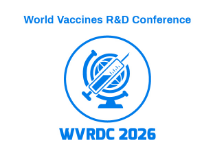Scientific Sessions
Generations of Vaccines
Since the 20th century, vaccines have undergone several generations, each of which has improved safety and efficacy. First-generation vaccines include live attenuated (e.g., MMR, polio) and inactivated vaccines (e.g., hepatitis B), which provide long-term protection but with some risks. Second-generation vaccines (e.g., Hepatitis B, Diphtheria) target specific pathogen components, reducing risks. Third-generation vaccines like DNA use plasmids to trigger immune responses and offer broader immunity. Fourth-generation vaccines, such as mRNA and viral vector (COVID-19), provide immediate protection against emerging diseases. International events, like the World Vaccines R&D Conference, are vital in promoting research, collaboration, and innovation to solve global health problems.

